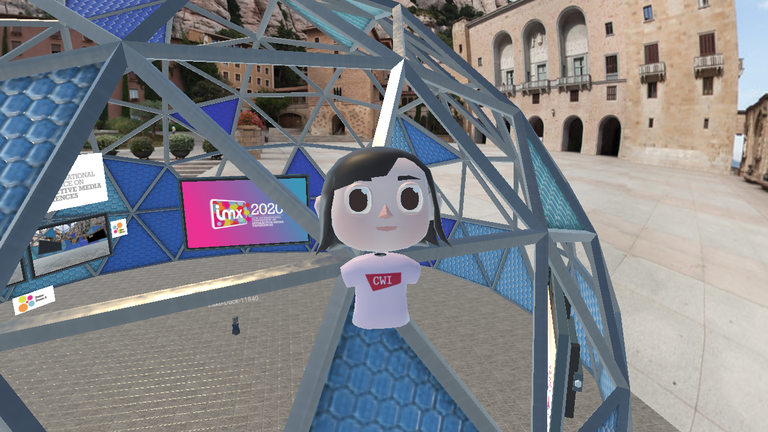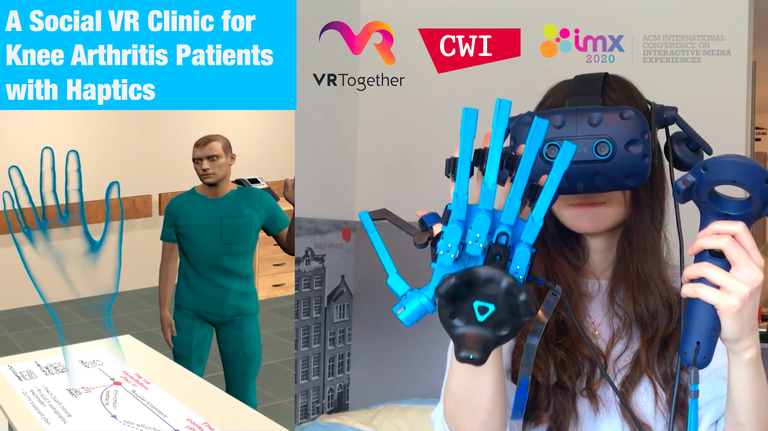On June 19th 2020, the demo paper “A Social VR Clinic for Knee Arthritis Patients with Haptics” authored by Tong Xue (CWI, BIT), Jie Li (CWI), Guo Chen (IBM Research, Beijing) and Pablo Cesar (CWI) was awarded the Best Demo Award at the ACM International Conference on Interactive Media Experience (ACM IMX) 2020. The demo was presented remotely, through a social virtual reality (VR) platform called Mozilla Hubs.



